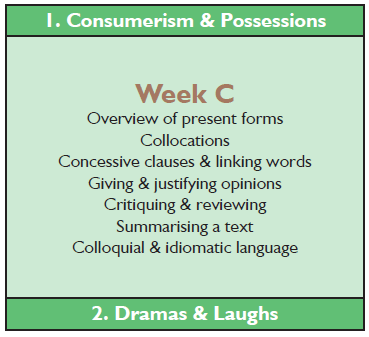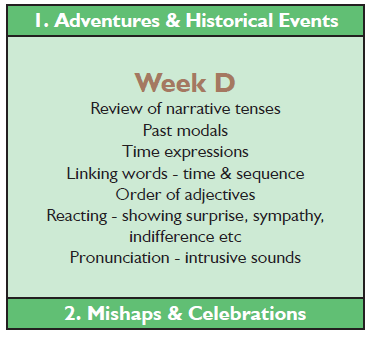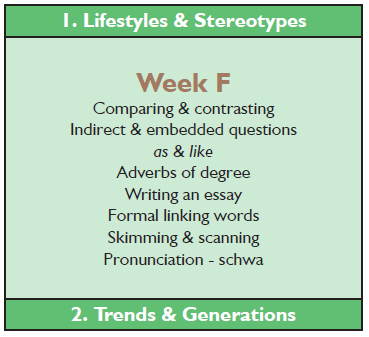Welcome to the Lewis School’s online interactive syllabus.
Scroll down to learn more regarding TOPICS and CAN-DO STATEMENTS for this level
Click image to enlarge
Each level follows a 12-week cycle. There are 6 weekly units of grammar (Weeks A-F), and 12 topics. Each week you will study either Topic 1 OR Topic 2. After Week F, we return to Week A, and change from Topic 1 to Topic 2, or from Topic 2 to Topic 1. Check the General English calendar each week. D1 means you are studying Week D, Topic 1.
Click on the links below to practise this week’s topics





To help you to measure your progress, we have listed the things you will be able to do after completing each week of the syllabus. We call these our ‘Can-Do’ Statements.
Read below the Can-Do statements for each week
I can…
I can…
I can…
I can…
I can…
I can…
Our online syllabus has been made in co-operation with TeachYa.com, a free website for English language students.